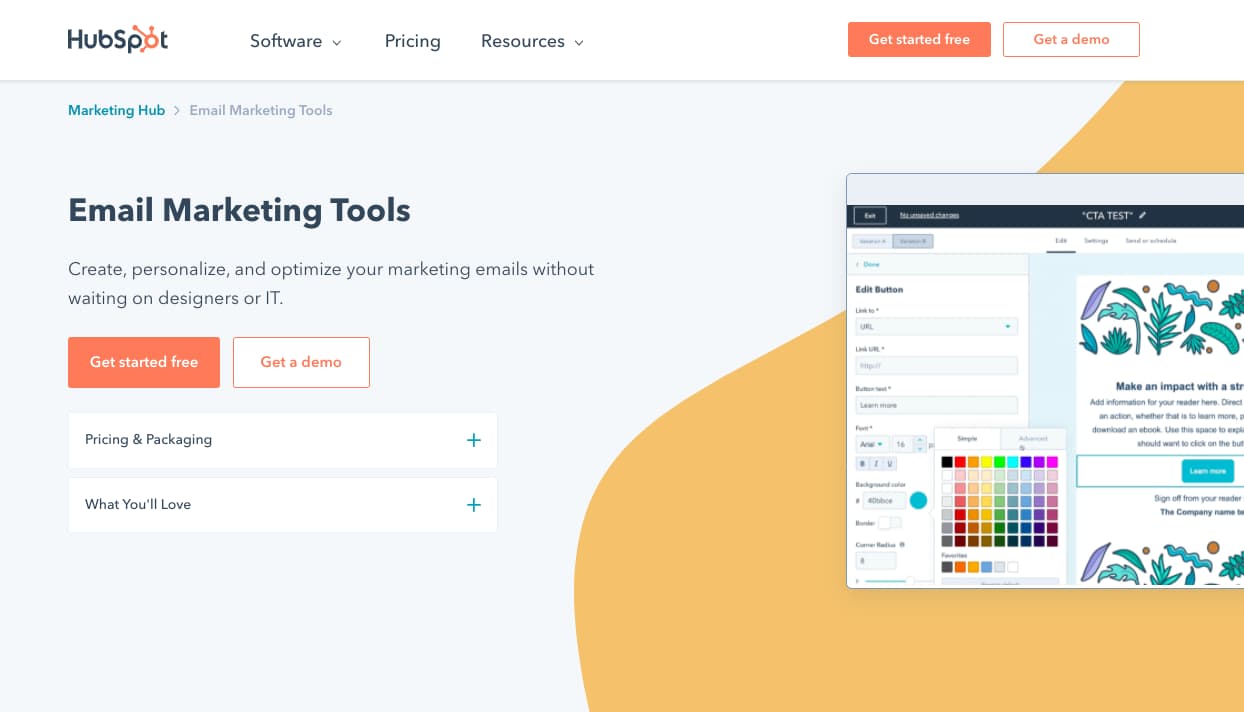


Email automation: Email marketing platforms with built-in email automation capabilities lets businesses automatically send email to individuals using a preset trigger.When choosing an email marketing software, look for one that offers built-in mobile templates for your emails. Mobile-optimized templates: A mobile-responsive email design ensures that customers can comfortably read your emails on small screens and navigate using appropriately sized buttons.
#Best crm and email marketing software software#
Most CRM solutions contain information about customer preferences, which email marketing software can leverage to generate campaign mailing lists based on demographics, interests, or past purchases. Integration eliminates the need for double entry of contacts and ensures that leads and customer data is consistent across all systems. Integration with CRM software: Businesses should consider integrating their email marketing tools with their existing CRM solution, and look for systems that offer this functionality.Reporting and analytics: Track email campaign KPIs such as delivery rates, click-to-open rates, and unsubscribe rates in charts and graphs.Users can select templates based on theme, layout, or campaign type. Template management: Customize built-in email templates with your company's logo/branding using a drag-and-drop editor.Users can send emails to the entire list or specific groups within a database, and export contact lists as CSV or XLSX files. Mailing list management: Create email address lists and groups based on contact types.CAN-SPAM compliance: Ensure that emails don't contain misleading headers or deceptive subject lines, and do include your business' registered, physical address as well as a proper opt-out mechanism.Subscribe or unsubscribe: Give users subscribe and unsubscribe options for each email.Mass email delivery: Send promotional and other marketing emails to a large group of recipients and ensure correct delivery.Some email marketing tools integrate with CRM software and/or other systems to automatically retrieve customer and lead data. Contact database: Store information about email subscribers, leads, and customers in a centralized location.This lets marketers make data-driven business decisions and create strategies for upcoming marketing campaigns. Measurable return on investment (ROI): Through email marketing platforms, businesses can track the effectiveness of each campaign by analyzing KPIs such as click-through rate, open rate, bounce rate, unsubscribe rate, and conversion rate.Most email marketing software lets users embed social media sharing buttons, extending your reach even further when subscribers use those sharing options. Easily shareable: Marketing campaign subscribers can forward and share emails with their personal networks with a simple click, helping you extend your reach beyond your established audience.Users can address each customer by name, personalize subject lines, include previously browsed products, reference membership milestones, and add loyalty/reward information. Message personalization: Email marketing software lets businesses customize messages for unique audiences based on their interests, location, purchase behavior, and more.


 0 kommentar(er)
0 kommentar(er)
